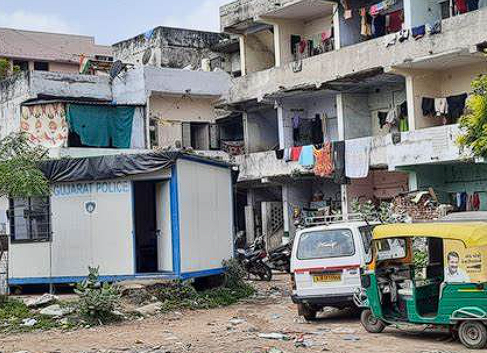Gujarat’s Disturbed Areas Act
The Disturbed Areas Act in Gujarat regulates the transfer of immovable property in areas identified as “disturbed” due to communal tensions. The Act aims to maintain communal harmony and prevent demographic imbalances. Recent amendments have expanded the powers of the district Collector, increasing scrutiny over property transactions in these sensitive areas.
What Is the Disturbed Areas Act?
- The Disturbed Areas Act was enacted to control property transactions in regions experiencing communal strife.
- The district Collector designates an area as disturbed based on its history of riots.
- Any sale of property in these areas requires the Collector’s permission.
- This process includes a formal inquiry where the Collector hears all parties involved.
Requirements for Property Transfer
To sell property in a disturbed area, the seller must submit an application to the Collector. This application includes an affidavit affirming the voluntary nature of the sale and the fair market price. The Collector assesses the application to ensure it does not lead to communal polarisation.
Penalties for Violations
Violating the provisions of the Disturbed Areas Act can result in severe penalties. Offenders may face imprisonment ranging from six months to five years, depending on the nature of the violation. This strict enforcement aims to deter illegal property transactions that could exacerbate communal tensions.
Recent Amendments and Their Implications
In 2020, the Gujarat government amended the Act to enhance the Collector’s authority. The amendments allow the Collector to investigate potential communal clustering resulting from property sales. The state government can now review the Collector’s decisions, even without an appeal. These changes aim to prevent demographic shifts that could destabilise community relations.
Legal Challenges and Court Rulings
The Act has faced legal scrutiny, with several property transfers challenged in the Gujarat High Court. In Vadodara, multiple cases have been contested since 2016, often involving objections from neighbours. Courts have sometimes ruled in favour of property sales, emphasising the need to limit third-party interference in private transactions.
Areas Covered by the Act
The Act applies to various districts in Gujarat, including Ahmedabad, Vadodara, and Surat. Recent extensions have added new areas and prolonged the Act’s application in existing regions, such as Anand district. This ongoing enforcement marks the government’s commitment to addressing communal issues.
Month: Current Affairs - February, 2025
Category: Legal & Constitution Current Affairs








